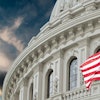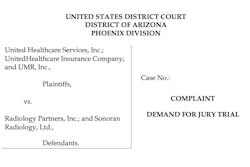Ever since it became effective at the beginning of 2022, the No Surprises Act (NSA) has been the subject of legal challenges from the medical provider community. In particular, legal action was filed by the Texas Medical Association, et al (TMA), to challenge the Independent Dispute Resolution (IDR) methodology, which is viewed as more favorable to insurance claims payers and grossly unfair to physicians.
In early September 2024, an appeals court upheld a February 2023 ruling in favor of the TMA. The result of this decision is that the Qualifying Payment Amount (QPA) must be considered by arbitrators with no more weight than any other factor when adjudicating a disputed payment amount. The QPA is determined by reference to other insurer payments, thereby giving the payers more influence over the outcome of the payment rate in dispute. The appeals court decision forces the government to revise its regulations with regard to application of the NSA, and it is expected that the dispute resolution process will be suspended until that occurs.
 Sandy Coffta.
Sandy Coffta.Other updates to the NSA regulations were proposed by the U.S. Centers for Medicare and Medicaid Services (CMS) in October 2023, but they have yet to be implemented in a final rule. The American College of Radiology (ACR), along with the emergency physicians and anesthesiology specialty societies, are eager to have the rule finalized. One of the provisions most relevant to these groups is regarding the batching of claims within the IDR, which allows physicians to group together similar claims rather than submitting them one at a time.
In their letter of August 8, 2024, the societies argue that the arbitrators (Independent Dispute Resolution Entities or IDRE) have too much flexibility to determine which services can be batched, which leads to inconsistent determinations of what constitutes a proper batch. This ultimately delays claim resolution, which works in favor of the insurance payers.
“Public data indicates that approximately 80% of the time, independent arbiters have found the physician’s request to be more reasonable than the health plan’s initial payment,” reported the Emergency Department Practice Management Association (EDPMA). However, even when physicians prevail in the IDR, as is true in the majority of disputes, it has been shown that insurance payers are late to issue reimbursement, often failing to conform with the NSA requirement. The EDPMA went on to say that a survey of their members revealed, “in disputes where the provider was the prevailing party, 24% were still not paid or were paid correctly within the 30-day requirement in the law.”
In response to pressure from physician groups, House Resolution 9572 has been introduced in Congress to impose a penalty of three times the difference between the insurer’s initial payment and the IDR’s ruling, which would accrue compound interest. The chair of the ACR Board of Chancellors stated, “There is a real need for accountability after disputes are resolved under the No Surprises Act because right now insurance companies are often just not paying. This situation may leave clinicians in financial peril, which in turn threatens the access to care for patients that the No Surprises Act was supposed to protect. The ACR supports this legislation and its sponsors’ continued work to protect the principles of the No Surprises Act.”
We will continue to monitor these issues for our readers.
Sandy Coffta is the vice president of client services at Healthcare Administrative Partners.
The comments and observations expressed are those of the author and do not necessarily reflect the opinions of AuntMinnie.com.



















